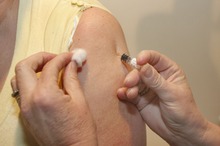University Hospital Zurich
Raemistrasse 100 Zurich, Zurich (Switzerland)
German Hospital Service
Destouchesstr. 1 Munchen, Bayern (Germany)
Moorfields Eye Hospital NHS Trust
162 City Road London, Greater London (UK)
Flinders Medical Centre
Flinders Drive, Bedford Park South Australia (Australia)
NZ health policy questioned

The widening health gap between New Zealands rich and poor has been highlighted in leading international medical journal The Lancet and has been labelled by health professionals as a quotsad indictment of the powerfulquot
In the wake of new research revealing the dramatic unequal rise in the rate of infectious diseases the esteemed global publication has called on the Government to take action
Hospital admissions for infectious diseases have risen by more than 50 per cent in the last two decades according to figures released last month by Otago University Wellington Rates in other developed countries are declining
The research showed Maori and Pacific peoples were more than twice as likely as the European population to be hospitalised with a serious infectious disease
Those living in deprived neighbourhoods were almost three times the risk compared to those living in the most affluent areas the study found
Now an article written by the editors of the Lancet has called on New Zealand to address the inequalities
quotThe apparent widening of longstanding health disparities based on economic position and ethnicity in a country that has repeatedly tried to narrow differences is disappointing and prompts questions about the effectiveness of current policies for health equityquot the article says
quotDisparities have changed little for either the Maori or for Pacific peoples who together constitute a fifth of the population in New Zealand in the past two decades More effective solutions are neededquot
After the shocking figures were revealed last month Prime Minister John Key agreed the health gap was a wider social issue that needed to be addressed
But Health Minister Tony Ryall today Fri said the Government had taken practical and proven steps to address infectious diseases in New Zealand and was making significant progress
The Government had invested 24 million in stamping out rheumatic fever lifted immunisation rates from 70 per cent to 92 per cent in the past four years and invested more than 340 million in a home insulation programme he said
quotWe have also expanded WellChild visits and B4 School Checks so we can identify disease much sooner
quotB4 School Checks have been boosted from 3000 in 2008 to over 100000 and climbing with a particular emphasis on high needs communities and we are investing an extra 21 million which will mean an estimated 54000 more WellChild visitsquot Mr Ryall said
Labour health spokeswoman Maryan Street said the Lancet was quothugely prestigiousquot and the implications of having New Zealands policies questioned in it were serious
quotPeople will be shocked that New Zealand has these kinds of problems It will be a hit on our reputation and that is a shamequot she said
Ms Street noted that there would have been changes since the study ended in 2008 but agreed that more work needed to be done to fix poverty
quotThis Government has not done anything about affordable housing While it has improved and continues to work on insulating houses more needs to be done to help private residential homes as well as state housesquot
The editorial accompanies the publication of the research by Associate Professor Michael Baker and his colleagues
Mr Baker has called for a quotconcerted multisectoral government responsequot to include contributions from tax and welfare policy employment housing and education
quotWe hope that our Government and the health and science communities will rise to these challengesquot he said
Professor Diana Lennon head of clinical paediatrics at Auckland University said the health gap is a quotsad indictment of the powerfulquot in New Zealand
quotMiddlemore Hospital has a winter roster for pneumonia because they cant cope without doubling their staff That doesnt happen in Melbourne Sydney or London Its nonsensical and it doesnt make economic sense either
quotPeople cant believe New Zealand is like this because we had this wonderful reputation from the 1940s where we were progressive with our social legislation but boy weve slipped the other way and were slipping furtherquot
She estimates that 10000 hospital admissions could be saved every year if the number of Maori and Pasifika hospitalisations were quotreduced to Pakeha levels
quotIts nuts The rates were always awful weve had rheumatic fever for 30 years and nobodys been listening but now the numbers are changing
quotNow one in three kids in New Zealand is Maori or Pacific and theyre carrying this socioeconomic stuff with them and theyre becoming economically more important so people are starting to pay attention Its a very cynical viewpoint but Im afraid thats where it isquot
Dr Cameron Grant Associate Professor at Auckland University and paediatrician at Starship Childrens Hospital agreed
He said quotWe must eliminate the current inequities in health that exist between indigenous and nonindigenous New Zealanders and in population subgroups such as Pacific children and children living in more deprived householdsquot
More preventive health strategies for Maori and Pasifika are urgently needed to reverse the quotdisturbing trend in increasing disparitiesquot says Professor Chris Cunningham Director of Massey Universitys Research Centre for Maori Health amp Development Dr Nikki Turner director of Auckland Universitys immunisation advisory centre added quotThere are economic social and medical interventions that can and should be considered to address this problem and as a society we need to address this urgentlyquot
Date : 23 Mar, 2012
Reference : http://www.nzherald.co.nz/nz/news/article.cfm?c_id=1&objectid=10794083
